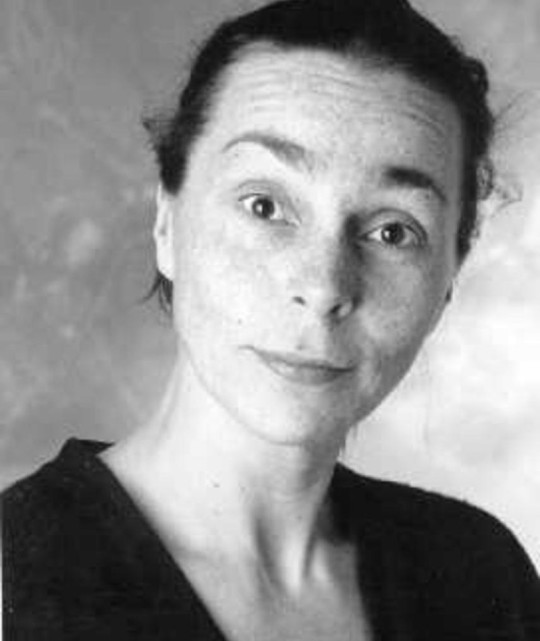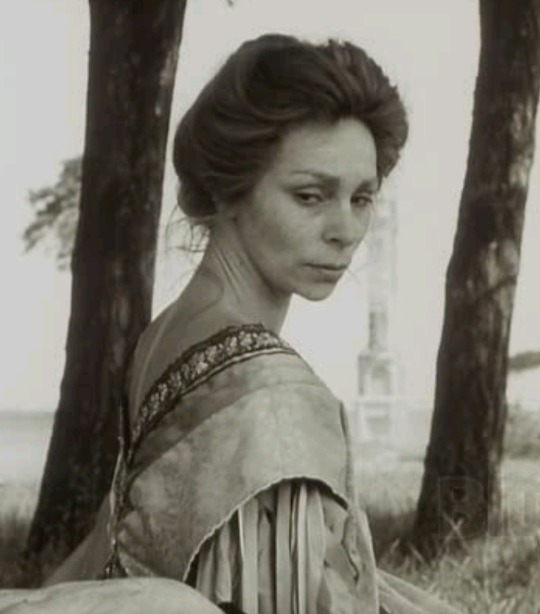#Guðrún Gísladóttir
Text
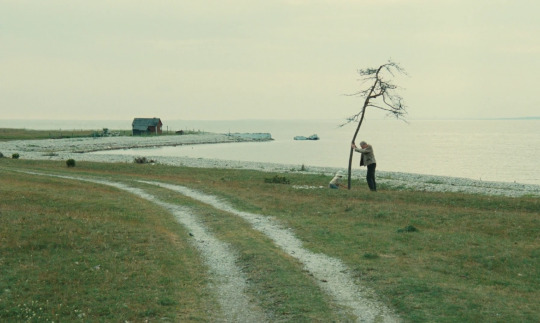
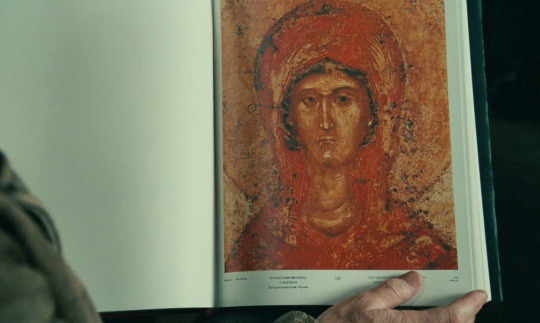
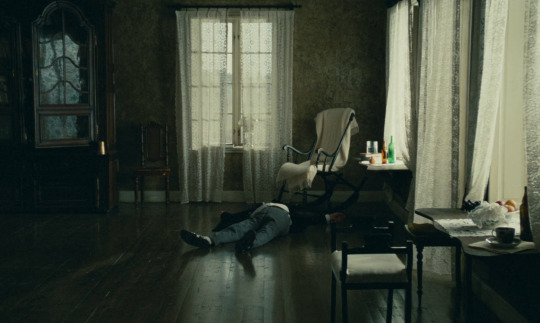

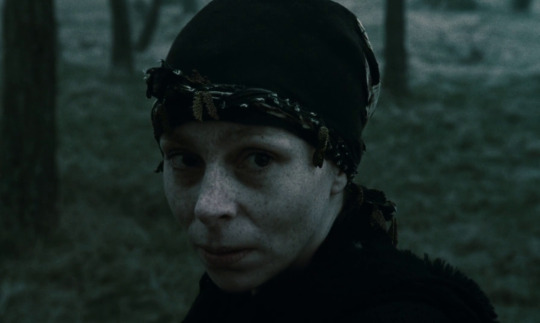
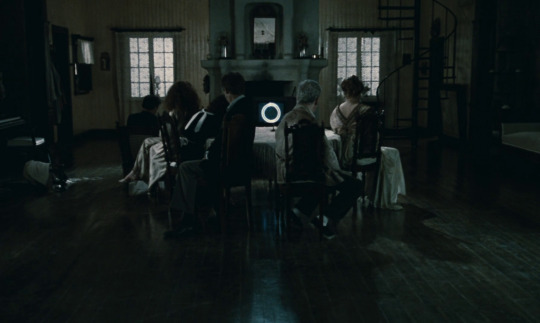

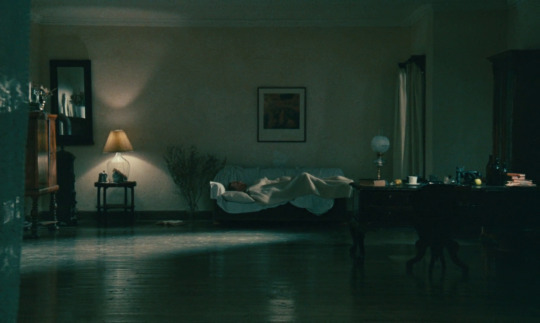

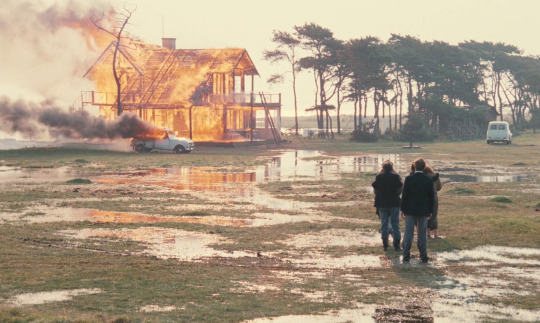
The Sacrifice (1986) | dir. Andrei Tarkovski
#sacrifice#offret#andrei tarkovsky#erland josephson#susan fleetwood#guðrún gísladóttir#films#movies#cinematography#screencaps
223 notes
·
View notes
Text
Review: Björk stars in Nietzchka Keene’s rarely seen film ‘The Juniper Tree’
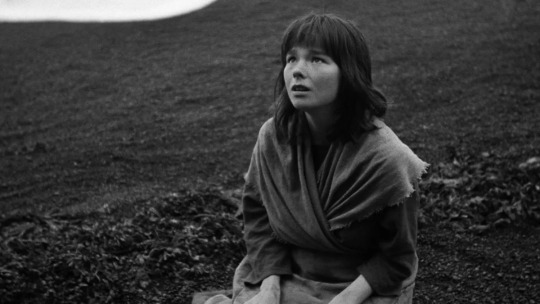
Björk in the 1989 film “The Juniper Tree.” (Arbelos Films)
BY ROBERT ABELE
APRIL 16, 2019 12:27 PM PT
At the very least, watching Nietzchka Keene’s haunting Icelandic fairy tale “The Juniper Tree” can cause your sense of time to fall away. A black-and-white movie filmed in 1986, it recalls both the indie wilderness vibe of its time, yet also the monochromatic severity of early Bergman and Tarkovsky.
Heading the cast is an instantly recognizable Björk, prior to her becoming a global music phenomenon, which creates its own recontextualized aura around her. It’s also adapted from a Grimm fairy tale, yet infused with a modern feminist sensibility, and while it’s a ghostly affair with magical touches, it’s shot through with a hard-bitten realism about medieval life.
Keene didn’t complete her micro-budgeted debut feature, which she wrote, directed and edited, until 1989, after which it made the festival circuit — including the Sundance Film Festival in 1991 — but only received one Los Angeles showing, in 1990 at UCLA, Keene’s MFA alma mater. Now, 15 years after her death, in her starkly enchanting film has been given a 4K restoration, and another single-viewing chance, this time at the American Cinematheque. The opportunity is a welcome one, because Keene’s atmospheric gem deserves renewed appreciation and fresh discovery.
After finding a dead woman floating in a creek, stoned and drowned as a witch, waif-like Margit (Björk) and her pragmatic older sister Katla (Bryndis Petra Bragadóttir) must flee to avoid the same fate, which also claimed their mother. Stern widowed farmer Johan (Valdimar Örn Flygenring) takes them in, but his suspicious son Jonas (Geirlaug Sunna Þormar) — who visits his mother’s grave every day, like a dutiful son trying not to be forgotten — sees in Katla a family interloper practicing the dark arts.
He’s not entirely wrong, in that Katla believes in sorcery, but she’s also a persecuted woman in a harsh time trying to secure protection for herself and Margit — her seduction spells are born out of a desire to bind Johan to her, which she comes to realize would best be achieved with a pregnancy.
Jonas tries to turn his father against Katla, even though he isn’t so fearful of kindly, concerned Margit, and the young pair bond over their respective grief. But when Margit begins seeing visions of her dead mother — a silent, beckoning figure with a black hole in her chest — Jonas’ dislocation intensifies, until he feels the need to confront his stepmother at the most unwise of moments.
Those familiar with the original fairy tale will know where this is headed. Keene’s retelling preserves certain morbid details but alters others, so that a story steeped in misogyny and the supernatural can still resonate as a warning of the damaging ripple effects when desperation, displacement and mourning collide.
Stylistically, the movie is a stroll of otherworldly delirium, like a hybrid of Dreyer’s asceticism and the the chillier reveries in “The Night of the Hunter.” There’s austere beauty in cinematographer Randy Sellars’ rendering of the craggy, unforgiving Icelandic landscape, and for the memorable hypnagogic passages that occasionally fold over Margit’s reality, Keene enlisted acclaimed avant-garde director and optical effects guru Pat O’Neill.
Folk tales are how cultures make sense of the world, of how people changed and fates were secured. Keene fully grasps this, which is why she often has Björk’s Margit turning the details of the story she’s observing around her — hovering birds, a tended grave, her own loss, a boy’s worry, a woman’s desire — into a fanciful yarn she’s constantly spinning and revising. And Björk’s turn is a delicate, inviting thing, that innocent croak of a voice like some bridge between the mystical appeal of fairy tales and the cold truth about what human beings do when reason leaves them.
Keene made only a couple of films in her abbreviated life, but “The Juniper Tree” is absorbing enough to make one rue there weren’t more. But we can at least note for the history books that for all the hype Lars von Trier received for casting Björk in 2000’s “Dancer in the Dark,” a female filmmaker recognized her eccentric on-screen blend of mystery, humanity and guilelessness first.
#Björk#Björk Guðmundsdóttir#The Juniper Tree#Bryndis Petra Bragadóttir#Guðrún Gísladóttir#Valdimar Örn Flygenring#Geirlaug Sunna Þormar#Patrick Moyroud#Nietzchka Keene#Iceland#Quando Éramos Bruxas#Quand nouEinitréð#s étions sorcières#ビョークの「ネズの木」 グリム童話より#Krzew jałowca#Можжевеловое дерево#Cuando fuimos brujas#Ardıç Ağacı#Seljalandsfoss Waterfall#Larry Lipkis#Los Angeles Times#LA Times
1 note
·
View note
Text
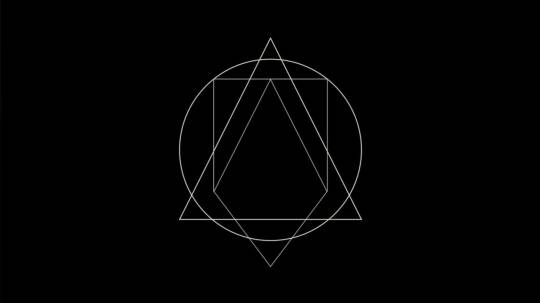

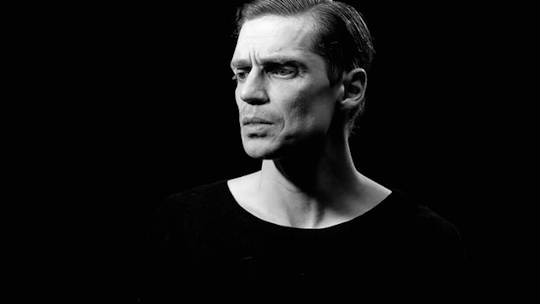
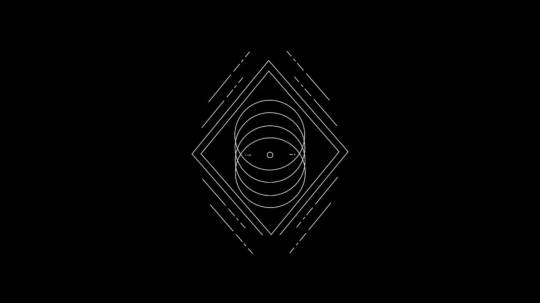


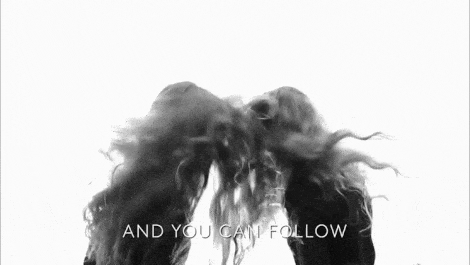





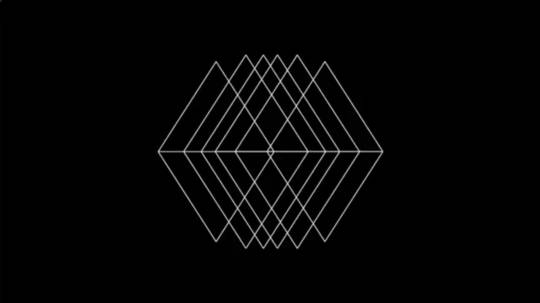
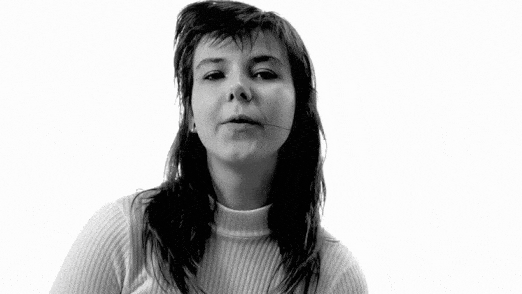

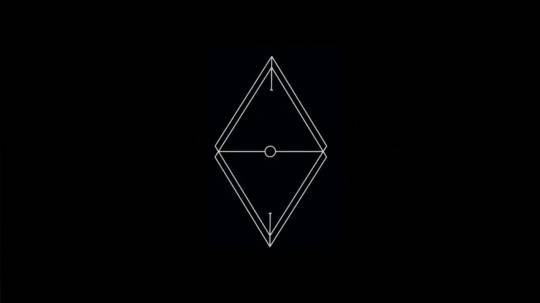
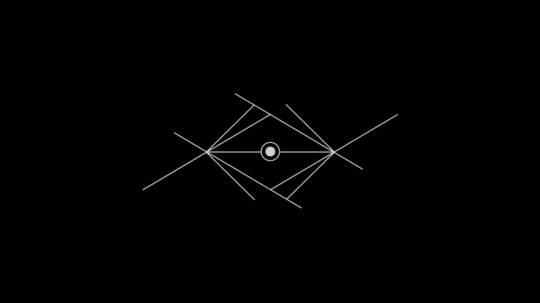
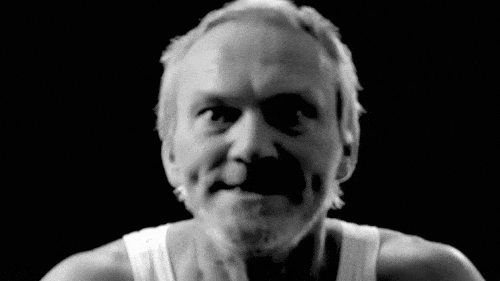

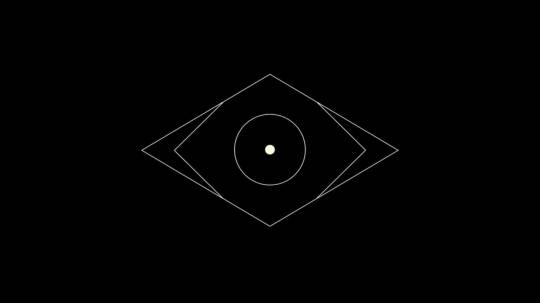

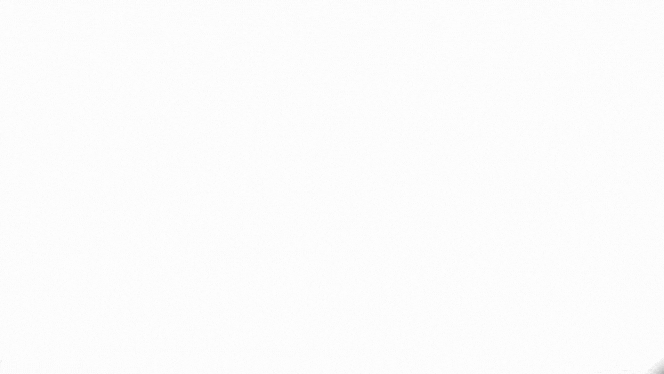

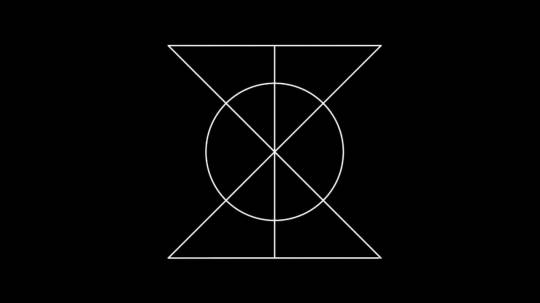

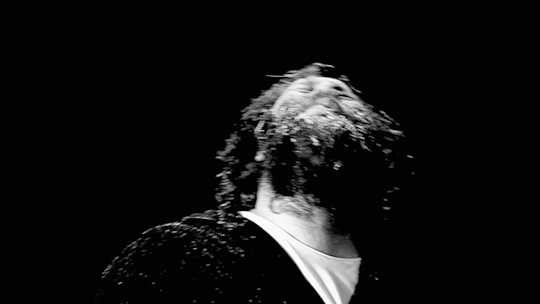
Beneath the Skin - Of Monsters And Men
Crystals (Siggi Sigurjóns);
Human (Björn Stefánsson);
Hunger (Natalie G. Gunnarsdóttir);
Wolves without teeth (Erna Jónasdóttir and Hrefna Jónasdóttir);
Empire (Guðrún Bjarnadóttir);
Slow life (Tómas Lemarquis);
Organs (Nanna Bryndís Hilmarsdóttir);
Black water (Guðrún Gísladóttir);
Thousand eyes (Ingvar E. Sigurðsson);
I of the storm (Atli Freyr Demantur);
We sink (Heba Aljakari; Jimmy Salinas; Julie Loparia; Kansha Iyassu; Khaalid Saaid Jeylani; Majid Zarei; Nazanin Askari);
Backyard (Dýrfinna Benita);
Winter sound (Ólafur Darri Ólafsson)
#of monsters and men#omam#beneath the skin#crystals#human#hunger#wolves without teeth#empire#slow life#organs#black water#thousand eyes#i of the storm#we sink#backyard#winter sound#lyrics#lyric video#iceland#music#2015#indie#indie music#indie folk
6 notes
·
View notes
Photo
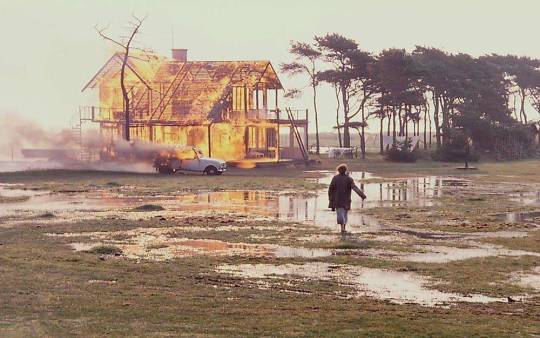
The Sacrifice (Andrei Tarkovsky, 1986)
Cast: Erland Josephson, Susan Fleetwood, Allan Edwall, Guðrún Gísladóttir, Sven Wollter, Valérie Mairesse, Filippa Franzén, Tommy Kjellqvist, Per Kellman, Tommy Nordahl. Screenplay: Andrei Tarkovsky. Cinematography: Sven Nykvist. Production design: Anna Asp. Film editing: Michal Leszczylowski, Andrei Tarkovsky.
Andrei Tarkovsky's The Sacrifice was his last film, finished only months before his death, and is in many ways extraordinary. But I'm afraid it tempts me to sarcastic assessments like "art-house profundity," a rude and inadequate phrase that I might have used about the film if I didn't respect its maker so much. For The Sacrifice is unquestionably a visionary film, drawn from Tarkovsky's heart and soul. I just wish there were a little more brain holding heart and soul in check. Is it my habitual agnosticism that makes me bridle against the protagonist's quest for metaphysical certainty? The search for God has produced cinematic masterworks like Carl Theodor Dreyer's Ordet (1955), Robert Bresson's Diary of a Country Priest (1951), Tarkovsky's own Andrei Rublev (1966), and, most appropriate in this context, Ingmar Bergman's The Seventh Seal (1957). The Bergman connection suggests itself because Tarkovsky made his film in Sweden, with Bergman's frequent leading man Erland Josephson and cinematographer Sven Nykvist, in a location, Gotland, that resembles the island of Fårö, the location of many of Bergman's own films. But The Sacrifice seems to me to take some of the worst aspects of some of Bergman's films -- the rather histrionic treatment of people's search for faith in Through a Glass Darkly (1961) and The Silence (1963) -- and intensify it. Precipitating the crisis of The Sacrifice with the threat of nuclear holocaust warps the film away from psychological truth into didacticism. One of the reasons Andrei Rublev succeeds is that, like The Seventh Seal, it is set in an age of faith. Both films depict the essential downside to spiritual certainty -- bigotry and fanaticism and a loss of essential humanity -- while balancing it with a portrayal of the rewards of faith: kindness and creativity. But to liken the plague that threatens the world of The Seventh Seal to the threat of nuclear annihilation misses the point: For the medieval world, the Plague was a test of faith; for the modern world, the Bomb is a test of humanity. The Sacrifice, I think, misses that point. Moreover, I think Tarkovsky's style -- enigmatic, elliptical, deliberately obscure -- becomes a stumbling block in attempts to respond both emotionally and intellectually to the film. By failing to make relationships among the characters more explicit -- Is Marta (Filippa Franzén) Alexander's daughter? What is her connection to the doctor, Victor (Sven Wollter)? -- Tarkovsky forces us to spend a lot of our attention on matters of simple identification, distracting us from what should be the central focus of the film. And what, exactly, is that?
1 note
·
View note
Video
vimeo
Young couple Anna and Gunnar are deeply in love but they live in a society where people are assigned a new spouse by lottery every seven years. As their final day together approaches, they grapple with the nightmare of being torn apart and facing life with another partner. Starring: Bríet Ísis Elfar, Jóhann Kristófer Stefánsson, Ísar Máni Birkisson, Nanna Kristín Magnúsdóttir, Ólafur Egilsson, Þröstur Leó Gunnarsson & Guðrún Gísladóttir Director & screenwriter: Haukur Bjorgvinsson Producer: Tinna Proppé Executive Producers: Kjartan Þór Þórðarson, Hilmar Sigurdsson & Rob Tasker. DOP: Ásgrímur Guðbjartsson Editor: Úlfur Teitur Traustason Music Composer: Herdís Stefánsdóttir Sound design: Sindri Þór Kárason Wardrobe: Aleksandra Koluder HMU: Ísak Freyr Set Design: Kristinn Arnar Sigurðsson VFX: Rob Tasker Sound: Aggi Friðbertsson Colorist: Ögmundur Sigfússon Titles: Árni Gestur Sigfússon AD: Þórunn Guðlaugs Coordinator: Jana Arnarsdóttir Key Grip: Sissi Sissason Grip: Siffi Gaffer: Oddur Elíasson AC: Benji 2nd AC: Thea Frímann Best boy: Gunnar B Svavarsson HMU Assistant: Viktoría Sól Photographer: Hörður Sveinsson Catering: Þórunn Elva Þorgeirsdóttir
0 notes
Photo
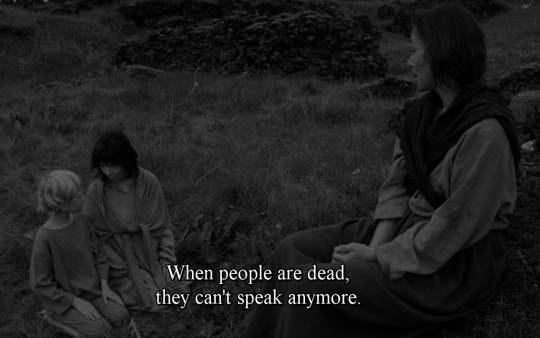
The Juniper Tree (Nietzchka Keene, 1990)
#The Juniper Tree#Nietzchka Keene#1990#quote#death#speak#horror#black and white#bjork#björk#björk guðmundsdóttir#Guðrún Gísladóttir#Geirlaug Sunna Þormar
244 notes
·
View notes
Photo



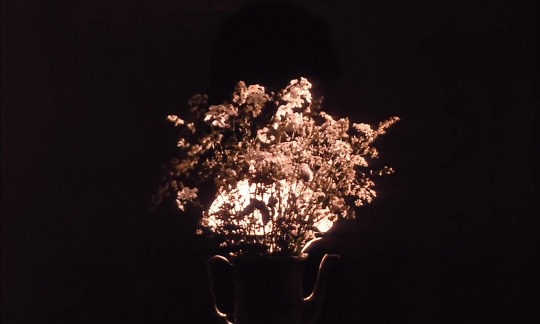
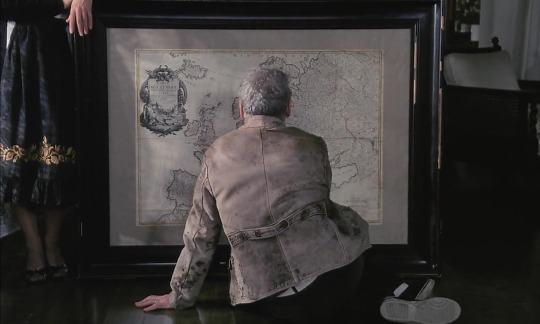
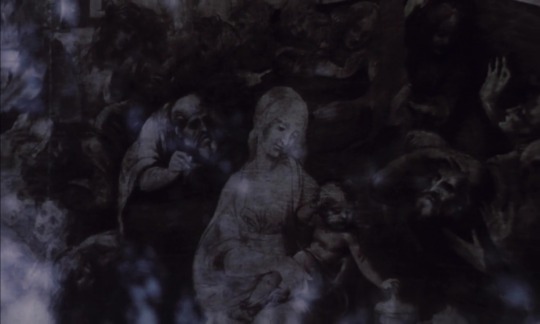
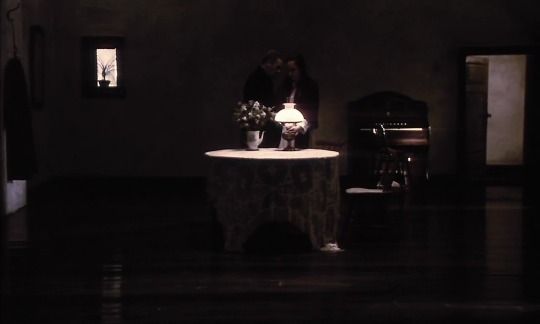



Offret (The Sacrifice) | Andrei Tarkovsky | 1983
#Andrei Tarkovsky#Tarkovsky#Offret#The Sacrifice#1983#Erland Josephson#Susan Fleetwood#Allan Edwall#Guðrún Gísladóttir#Sven Wollter#Valérie Mairesse#Filippa Franzén
365 notes
·
View notes
Photo

The Juniper Tree
directed by Nietzchka Keene, 1990
#The Juniper Tree#Nietzchka Keene#movie mosaics#Björk#Geirlaug Sunna Þormar#Valdimar Örn Flygenring#Bryndis Petra Bragadóttir#Guðrún Gísladóttir
23 notes
·
View notes
Photo
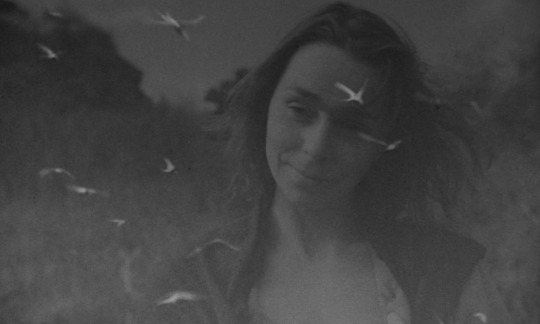
The Juniper Tree, dir. Nietzchka Keene (1990)
13 notes
·
View notes
Text

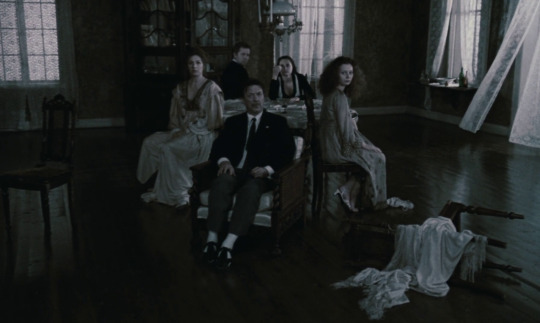
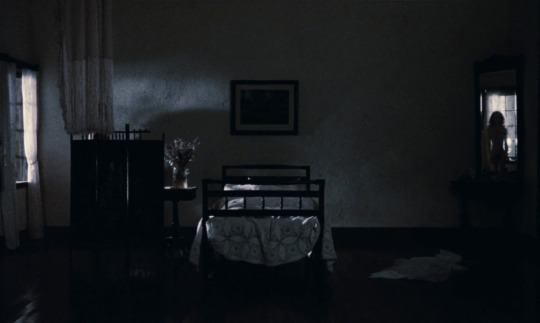
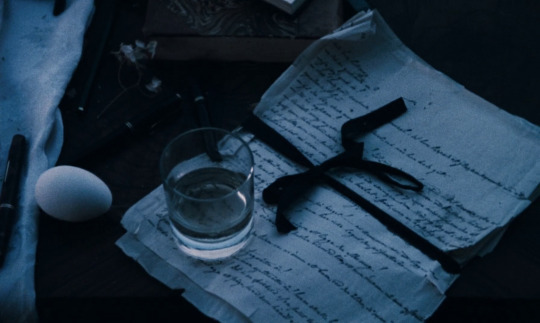
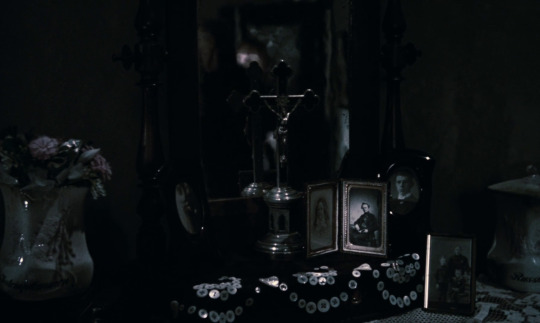
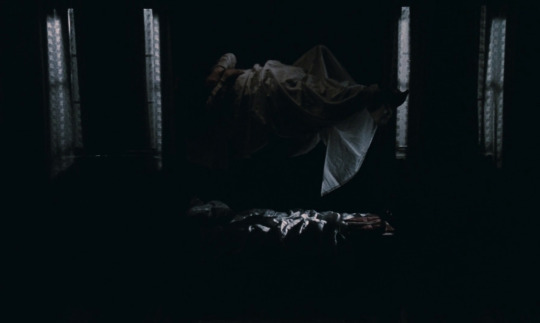
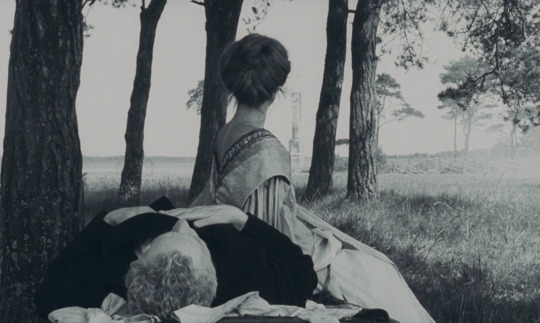
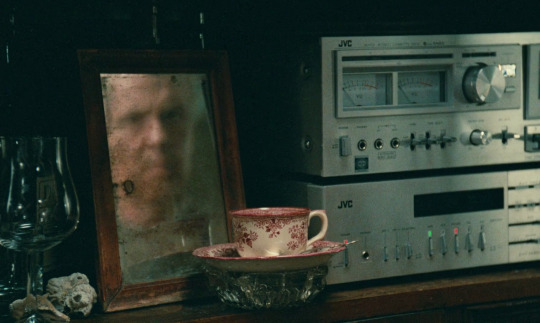
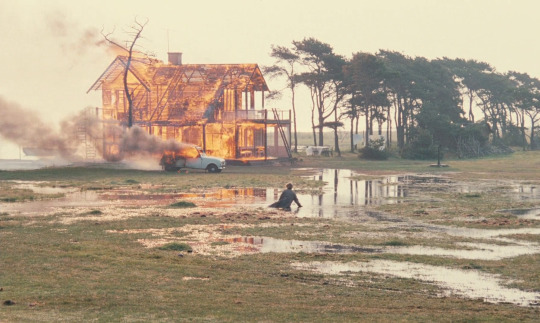
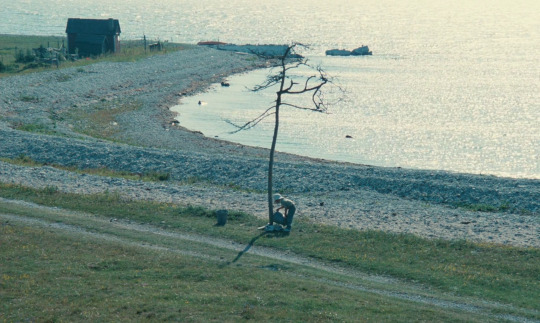
The Sacrifice (1986) | dir. Andrei Tarkovski
#sacrifice#offret#andrei tarkovsky#erland josephson#susan fleetwood#guðrún gísladóttir#films#movies#cinematography#screencaps
199 notes
·
View notes
Text
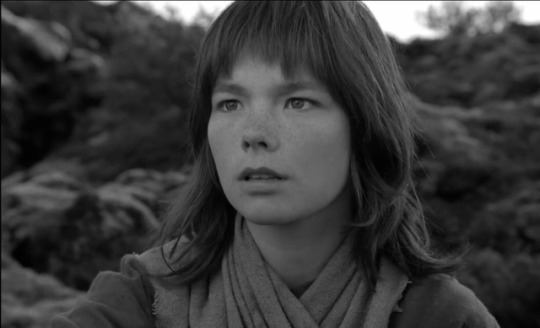

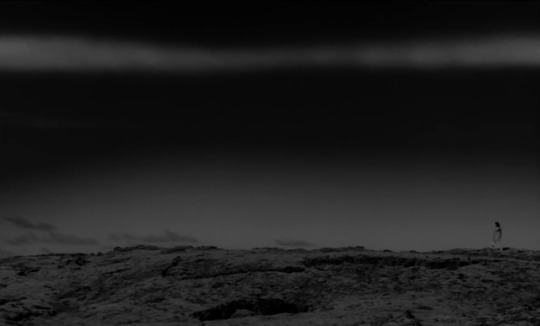
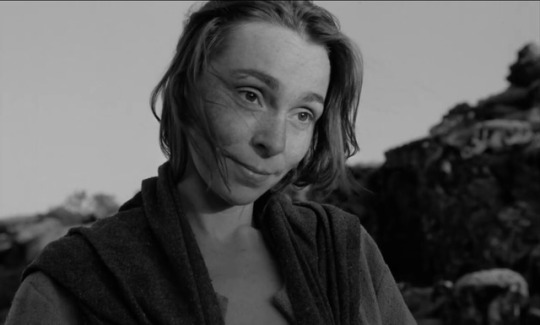
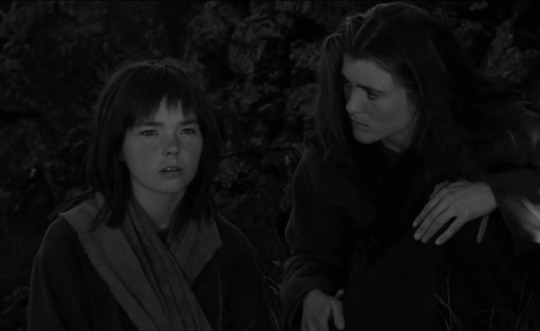

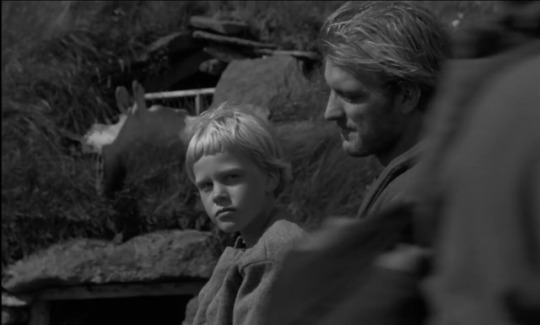


The Juniper Tree (1990)
#excited for the 4k restoration!!!#movies#björk#the juniper tree#iceland#nietzchka keene#guðrún gísladóttir#screencaps#longpost
32 notes
·
View notes
Photo

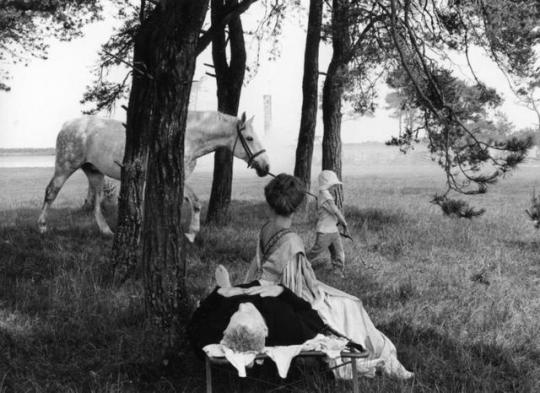
Alexander (Erland Josephson) and Mary (Guðrún Gísladóttir) in the dream scene of The Sacrifice.
#erland josephson#Guðrún Gísladóttir#on the set/the sacrifice#the sacrifice#andrei tarkovsky#Andrej Tarkovskij#Andrey Tarkovsky#andrei tarkovski#Tarkovsky#tarkovskij#tarkovski
13 notes
·
View notes
Photo
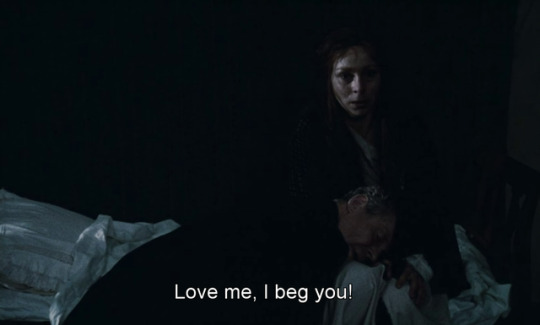
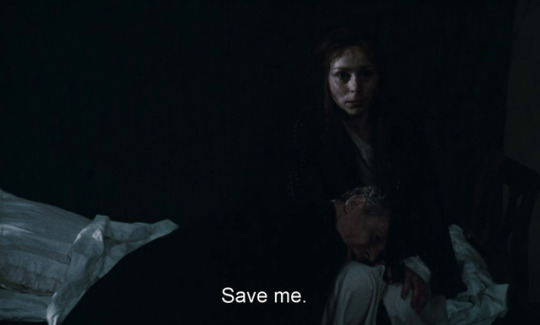
The Sacrifice (1986)
#the sacrifice#offret#andrei tarkovsky#guðrún gísladóttir#erland josephson#movies#film#quotes#love#1986
286 notes
·
View notes
Photo
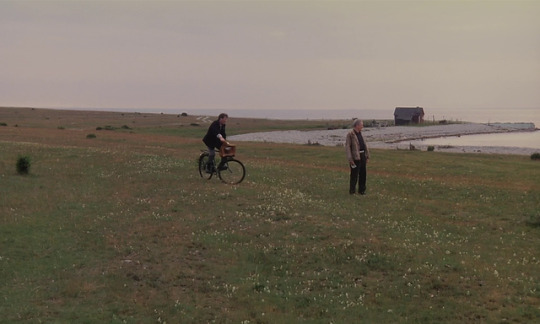
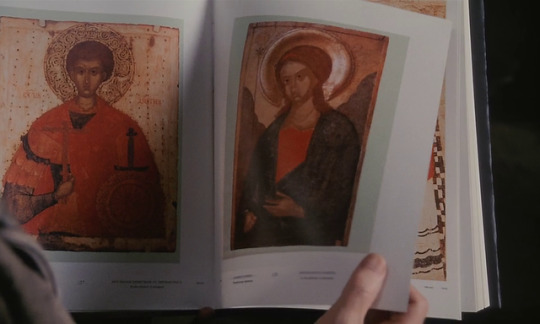
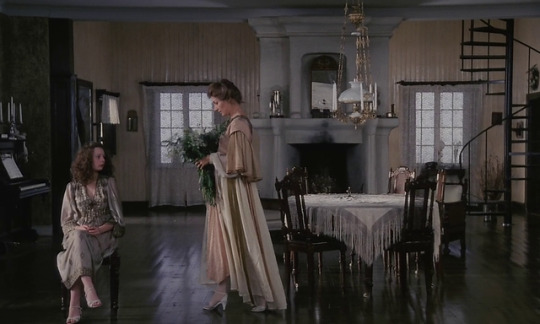
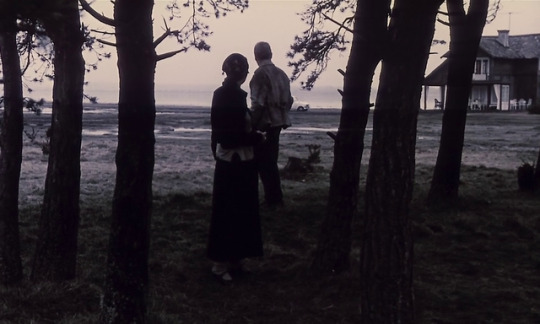
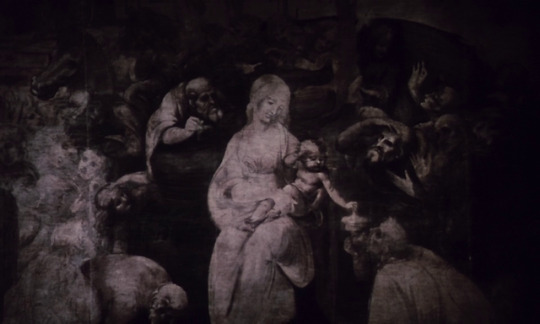
Offret, Andrei Tarkovsky, 1986.
#Offret#The Sacrifice#Andrei Tarkovsky#Erland Josephson#Cinema#Allan Edwall#Filippa Franzèn#Valérie Mairesse#Susan Fleetwood#Guðrún Gísladóttir
2K notes
·
View notes
